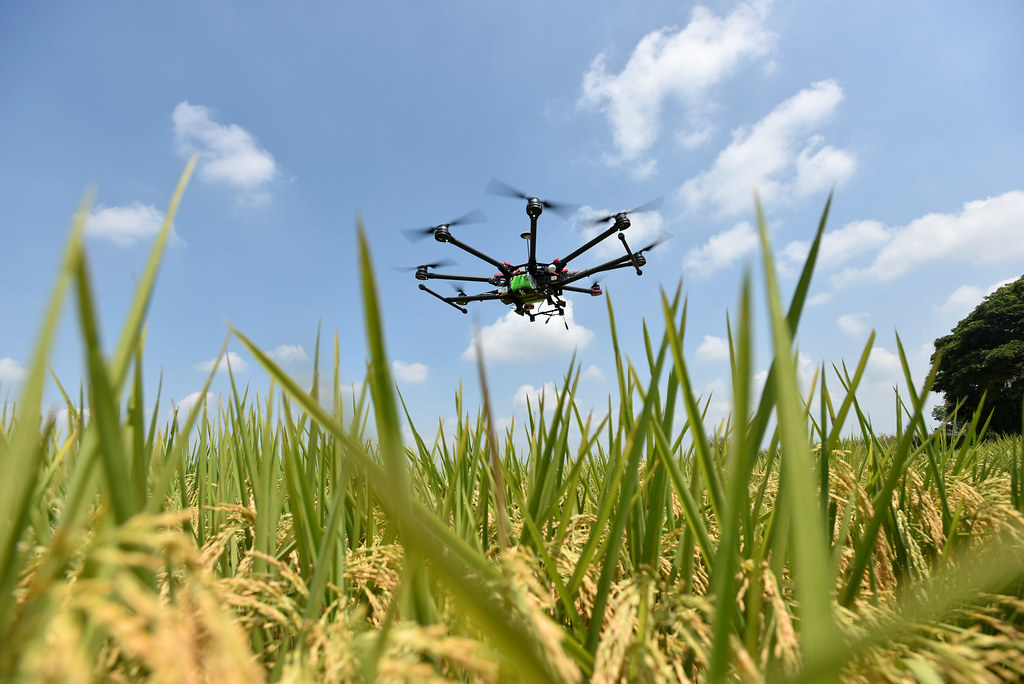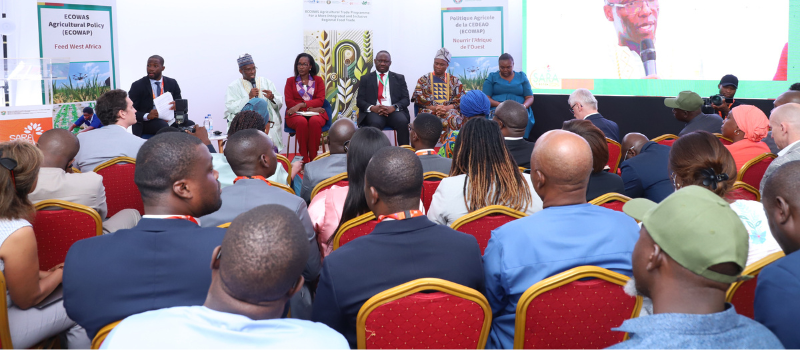-
RAAF
Contributing to the implementation of the Regional Agricultural Policy
RAAF Approach is essentially based on getting things done.
-
Thematics

Thematic areas
The implementation of the Regional Agricultural Policy (ECOWAP) is built around nine thematic areas.
-
Projects
- Renforcement des capacités pour la mise en œuvre de l’ECOWAP en Afrique de l’ouest
- At the end of PRAPS-1, which achieved significant progress in relation to most of the issues relating to animal health, sustainable management of rangelands and pastoral resources, livestock trade, and prevention and management of pastoral crises, the Wor
- Fruit flies are a major problem for the horticultural sector in West African countries. They destroy 50 to 80% of fruit production.
- The Global Climate Change Alliance Plus (GCCA+) is the second phase of an initiative of the same name launched by the European Commission in 2008
- West Africa is one of the most vulnerable regions in the world.
- Renforcement des capacités pour la mise en œuvre de l’ECOWAP en Afrique de l’ouest
- West Africa is facing three major challenges: (i) structural food and nutritional insecurity, (ii) the effects of climate change (droughts, aridity, floods, etc.), (iii) salinization and physico-chemical degradation of agricultural land.
-
News
Follow our news and events
-
Resources
Contents
More information on our work.
-
Multimedias
Interaction
Audio-visual based communication
-
Opportunities
Get Involved
- Portals
Intra-regional trade in agricultural products is one of the most important driving force of the economy and of food and nutrition security in West Africa. It is marked by diversified, mostly unrecorded, flows of nutrient-rich foodstuffs over long distances across the region. The fourth side-event in ECOWAS's participation in SARA 2025 focused on the results of a study recently conducted by the Sahel and West Africa Club in collaboration with AOCTAH, with financial support from GIZ through the EAT Project.
Presented by the Sahel and West Africa Club in collaboration with GIZ and panellists from the private and public sectors, the study shows that the real value of intra-regional trade in agricultural products is closer to 10 billion US dollars per year, which is six times more than all the aid for food and agriculture destined for Africa, and equivalent to imports of rice, wheat and palm oil from the rest of the world. It can be seen as the driving force behind regional food security. Furthermore, the report points out that the region obtains more than two-thirds of its food supplies internally, covering 25% of the region's calorie requirements. The regional food market is set to quadruple between 2010 and 2030, reaching 480 billion dollars. Thus, the need to regionalise the agenda of food sovereignty through intraregional trade and invest in better data for better policies.
This feedback provided the basis for discussions among panellists and participants. They questioned the many challenges linked to the integration of markets and agricultural products, including problems of processing, transport, road congestion, free movement of goods, difficult access to financing, difficult access to markets, etc. To boost intra-regional trade in agricultural products in West Africa and the Sahel, all participants recommended effective implementation of existing legislation. Member States are therefore invited to enforce the commitments to which they have freely subscribed.

